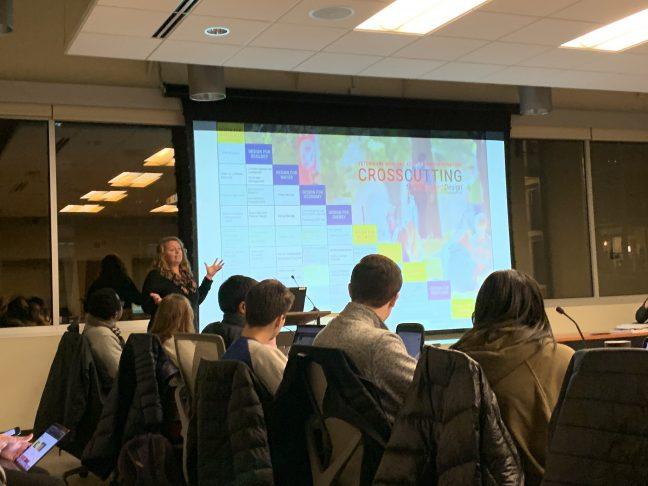The Associated Students of Madison passed new legislation regarding the reduction of campus’s carbon footprint and the search for a new University of Wisconsin System President during their meeting Wednesday night.
The new Renewable commitment would reduce carbon footprint and take a stronger stance against the use of fossil fuel energy. One representative said there needs to be a direct, specific approach, since UW is a Big Ten institution at the forefront of research and innovation.
Student Parker Eversaul, a member of Campus Leaders for Energy Action Now, presented an endorsement for a transition of UW campus from fossil fuels to renewable energy.
“I came to Madison for its research and environmental activism, but as of recently we are not seeing that anymore,” Eversaul said.
Director of Sustainability Missy Nergard shared a presentation about endorsements of sustainability in higher education. The presentation included UW’s rating on the STARS report, which measures colleges’ sustainability performance, to be silver or right in the middle.
“Sustainability is about a systems approach to complex problem solving, it includes social justice and economic systems as well as environmentalism,” Nergard said.
The second piece of legislation passed was a UW System Presidential Search Committee which calls the search committee to incorporate the spirit of shared governance.
It also acknowledged the Academic Staff Assembly’s passed resolutions in support of the recent Wiscard campaign to make Wiscards serve as a form of valid voter ID with proof of enrollment and residence. This came along with the announcement that UW had the second highest voter turnout in the Big Ten.
ASM also debated the creation of a research committee, since AlcoholEdu is being amended for next year’s incoming students. The committee would reach out to a wide variety of students and collect qualitative data regarding their opinions on alcohol policy.
Various other committee representatives said the goal of student feedback and expression is beneficial, but the bill itself is poorly structured. Representatives suggested some solutions to make the bill more intentional and specific.
The committee voted to table the debate of the creation of this committee until next Wednesday’s meeting.


